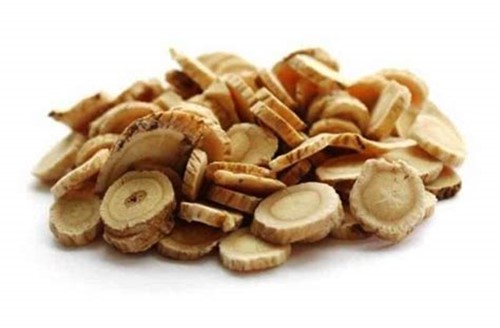
Scientific Name: Astragalus propinquus
Higher Classification: Milkvetch
Rank Name: Species
Order Name: Fabales
Astragalus
Published Date: 6/17/2023 5:55:15 AM
What is Astragalus:
- Astragalus is an adaptogen, used to strengthen and regulate the immune system, treat the common cold, upper respiratory infections, fibromyalgia, and diabetes.
- Astragalus is a small woody evergreen shrub that grows in northern China and the elevated regions of the Chinese provinces, Yunnan and Sichuan. It is also known as "Huang qi", "Milk-vetch", and "Locoweed". Astragalus is a large genus of over 2,000 species of herbs and small shrubs, only two are primarily used in supplements "Astragalus membranaceus" and "Astragalus mongholicus". (More Details)
- Composition: Astragalus contains flavonoids, which controls and kills free radicals preventing cancer, heart diseases, and immunodeficiency viruses. Saponins control the blood cholesterol and help to lower it down to a normal level. Polysaccharides have anti-inflammatory, antiviral, and antimicrobial properties. It also contains triterpenoids.
Availability:
- Astragalus roots are used to make different forms of supplements, including liquid extracts, capsules, powders, and teas.
- Astragalus is sometimes also given as an injection in a hospital setting.
What are its benefits:
- Its main use is to stimulate the body's immune system, also used to treat heart disease.
- It has antioxidant effects, that inhibit free radical production, that linked to many health problems like aging.
- It is a natural dietary supplement used for various health conditions like the common cold, diabetes, upper respiratory infections, and fibromyalgia.
- It also stimulates the spleen, lungs, circulatory system, urinary system, liver, as well as treats asthma, osteoarthritis, nervous conditions
- It is used to lower blood sugar and blood pressure.
Ayurvedic Properties:
- Rasa (Taste): Katu (Pungent) and Kashaya (Astringent)
- Guna (qualities): Laghu (Light) and Rooksha (Dry)
- Veerya (Potency): Ushna (Hot)
- Vipaka (The end product of digestion): Katu (Pungent)
- Karma (Effects on doshas): It pacifies Vata and Kapha dosha and eliminates Pitta dosha.
- In Ayurveda, the juice extract from the root is used as "Vishatinduka Taila" which is useful in gout and skin diseases.